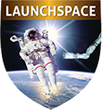Course Details
Course Summary
Artificial Intelligence is the ability of machines to perform tasks that are typically associated with human intelligence, such as learning and problem-solving. The mystery to replicate the human brain started a long time ago with Plato and Aristotle, and has been merged with other sciences such as cognitive psychology and neuroscience. The mystery of the brain and mind has not been philosophically established, whether it is monism or dualism. AI overlaps with data science, computer science, and logicism. Not knowing enough about the mind, we are making mind analogies (biology) with electronics as calculators (digital). This is not straight-forward since the sensors are mostly analog and the actuators are also mostly analog. Artificial Intelligence is loosely defined to have: inference, learning, problem solving, linguistics, planning, search, computer vision, state estimation, actuation (typically in the form of robots), internal sensing, health & status, diagnostics, prognostics, optimization, expert systems, decision-making, etc. And how do you know when the computer has reached its goal? . . .
Course Materials
Each attendee receives extensive notes, reference materials and a Certificate of Completion.
Who Should Attend
The course is for engineers, scientists, business managers, and engineering managers of diverse background and with varying levels of experience, including those who are new or familiar to artificial intelligence. This class would appeal to individuals who are involved in planning space projects, designing systems, building, testing, and during the operations of autonomous “robotic” or manned spacecraft.
What You Will Learn
Course Outline
1...Introduction.
Overview and background of Artificial Intelligence: logicism, neuroscience, psychology, and
computer science. Includes definitions, comparison between brain and computer, and a short
history of AI. Introduce the topics of intelligent agent, uncertainty, and probability. Touch on the Deliberative Paradigm.
2...AI in Space.
Where AI can be applied to space systems, starting from the design process and through
operations in space. AI is applied to requirements (both developing requirements or AI
requirements), analysis modeling, integration with hardware, and testing, especially analyzing
test data. This includes a detailed definition of autonomy and automatic systems.
3...AI in Space Use Case Studies.
There are three diverse case studies: rockets, rovers, and spacecraft. Rocket design and
operations, rover design and autonomous navigation, and spacecraft optimization and
autonomous operations in light of time delays.
4...Space AI Examples.
Deep Space 1’s Remote Agent experiment, Orion’s Vehicle System Management (mission
planning, resource management, health management, fault detection/isolation/recovery, scripting, caution & warning, abort logic, re-init/re-start), mission planning on XSS-11, and pose estimation for docking or berthing using artificial targets.
5...Thinking Machines.
Two fundamental approaches: symbolic logic or connectionist with parallel distributed
processing. Pros and Cons as they relate to weak AI technologies
6...Logical Approach.
Symbolic approach starts with models to represent knowledge. Logic is used for deductive
reasoning, problem solving, search, and planning based on knowledge representation and search trees.
7...Machine Learning Approach.
All AI systems have a component of learning, starting with the neuron in the perceptron, neural networks, and progressing to deep learning (having more than three layers). Generative AI is AI that is capable of generating text, images, and other media using generative models. Of particular interest are foundational or Large Language Models (LLMs) for realistic
conversations.
8...Gen AI Applications.
Using Generative Adversarial Networks (GANs), AI can generate Deep Fakes. AI has reached
parity in Natural Language Processing, with the best examples being ChatBots such as ChatGPT.
9...AI Hardware.
Processors are getting faster, while following Moore’s Law. Computers still are
constructed following the Von Neumann architecture but are getting broader based on Graphical Processing Units and more recently with Google’s Tensor Processing Units (specialized ASICs or FPGA chips).
10...Computer Vision.
Computer vision has two diametrically opposing approaches: bottoms-up starting with features
and observing the “whole” scene. Features are detected with detectors and filters but is slow and cumbersome. New learning techniques have re-energized computer vision to identify objects, including vertical features and moving objects.
11...AI Impact with Space Systems.
Issues with complexity, integration of software with hardware, and symbolic model checking are discussed. Complexity (vehicle or platform) has to deal with safety, reliability, and risk. This includes issues with data, displacement of jobs, and AI running amok.
12...Miscellaneous AI.
The Turing Test is often referred to as the imitation game and is a general test for achieving
human-level intelligence. This test is refuted with Searle’s Chinese Room scenario. There are
multiple issues with ethics. And there are potential issues that require addressing: consciousness and sentience.
13...Summary and Re-cap.
Time permitting, AI has many other weak-AI technologies that deserve mentioning: cybernetics, data mining, anomaly detection, pattern recognition, diagnostics, prognostics, combinatorial explosions, decision-making, expert systems, common sense, and robotics.
Instructor

Wendell Chun is Director and Assistant Professor of Systems Engineering at the University of Denver. He is a Subject Matter Expert (SME) in robotics, mobile robots, autonomy, and artificial intelligence. Wendell has 33 years of hands-on experience in industry at Lockheed Martin Space Systems Company where he was the principal investigator of various robotic R&D programs that featured self-driving cars, interfacing with a digital twin of a mobile robot, ground station architect, and autonomous manipulation. He is a technical advisor to different branches of the US government such as NASA and the Department of Energy, currently consulting on autonomous drones and ground mobile robots for radiation measurements. He was co-editor/conference chairman on the SPIE Mobile Robot Conferences from the mid-1980s to mid-1990s. Wendell was an author of sections in NASA’s Report to the US Congress on Satellite Servicing through NASA Goddard Space Flight Center and Chapter 61: Surveillance and Security Robots in the Springer Handbook of Robotics, Rev. 2.
